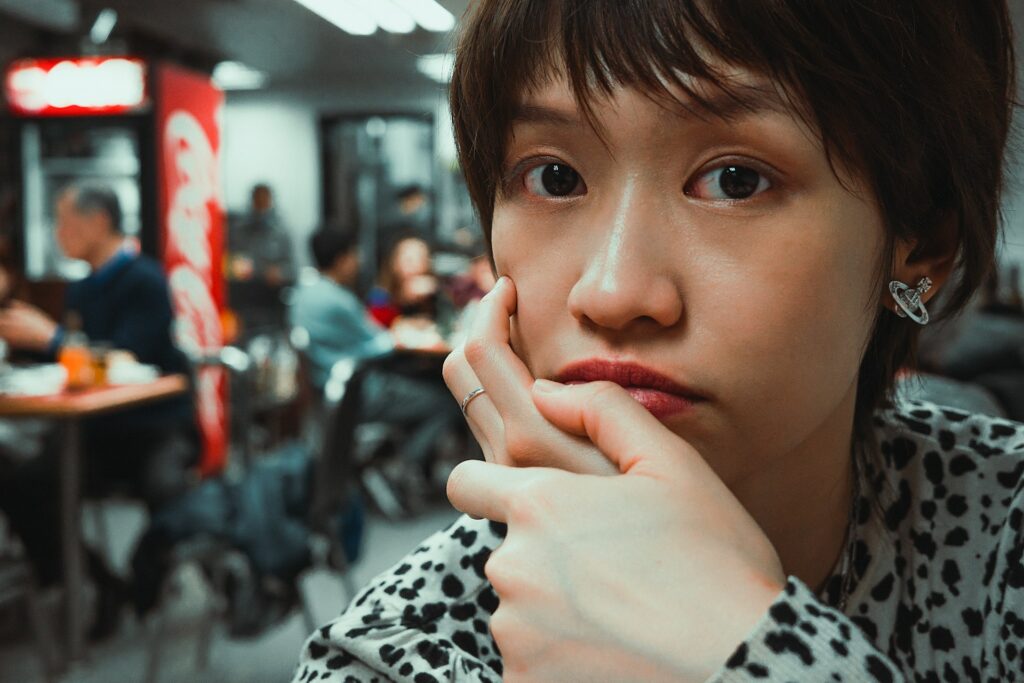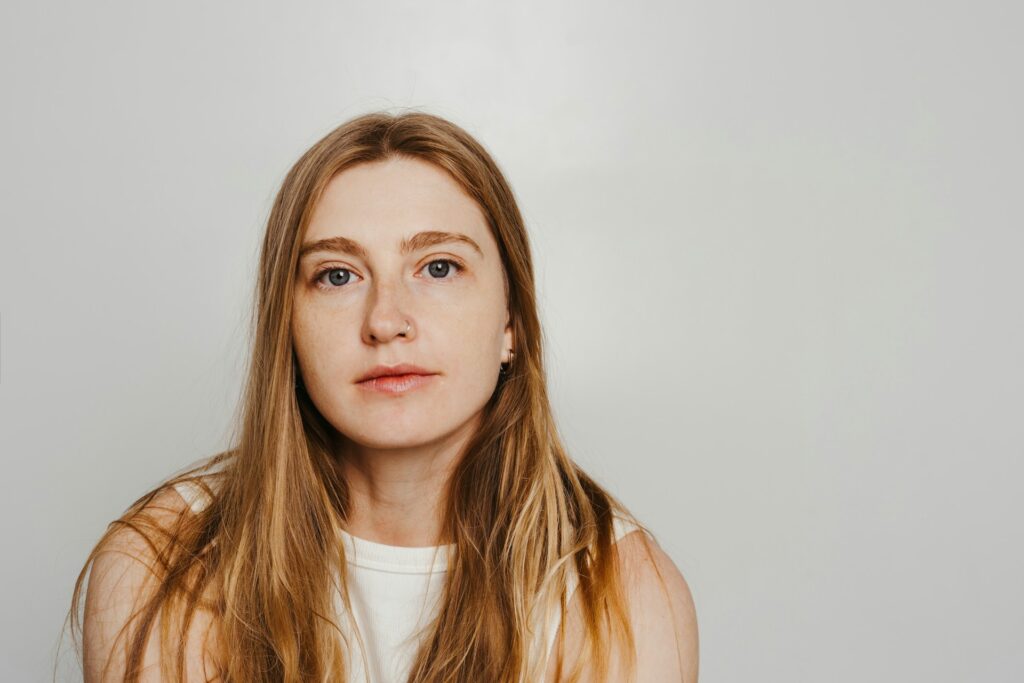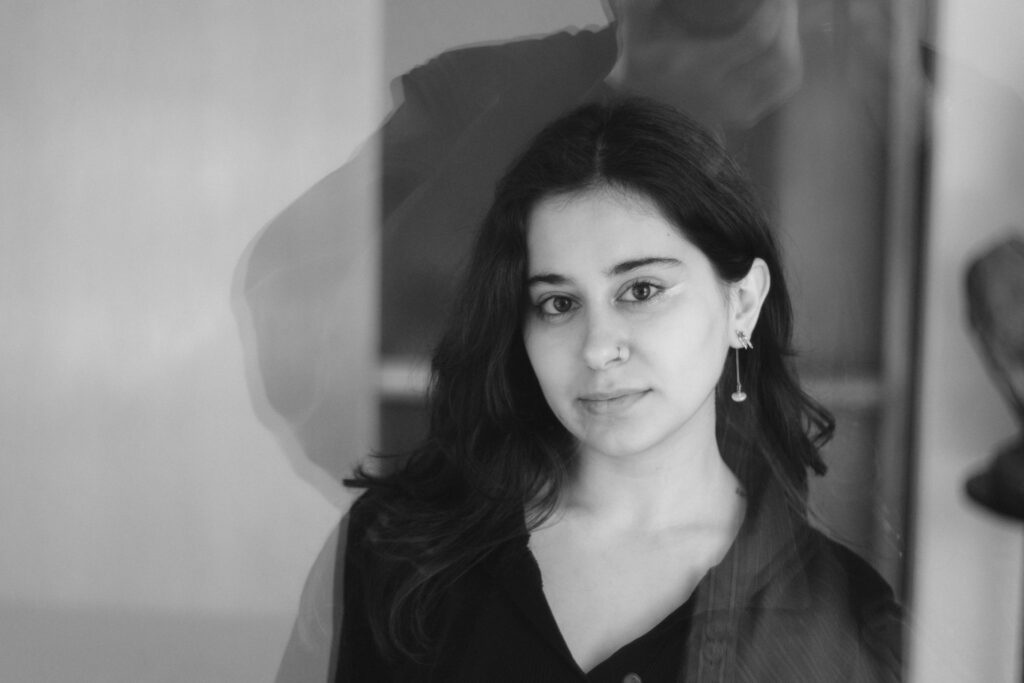There’s a strange moment in adulthood when your life still technically fits, but only just.

The habits, the people, the places… they’re familiar, but they don’t feel like home anymore. You’re not falling apart. You’re not even unhappy. You’ve just quietly started growing past it all. Here are just some of the thoughts that tend to show up and run in a loop through your brain when you’ve outgrown your old life, and you’re finally starting to notice.
1. “Why doesn’t this feel as exciting as it used to?”

The things that used to light you up now feel a bit stale or performative. You go through the motions, but there’s no buzz anymore. It’s not because you’ve become dull or ungrateful; it’s because you’re craving something deeper, something more aligned with where your head and heart are now.
This is usually one of the first signs you’ve grown beyond your old routines. You realise the fun you used to chase doesn’t hit the same anymore. Instead of forcing yourself to fake the enthusiasm, you start wondering what new kind of joy might be waiting if you gave yourself permission to change.
2. “I don’t relate to these people like I used to.”

Old friends start to feel like people you used to know, without anything bad having happened. The conversations are still polite, but they don’t fill you up anymore. You start feeling like you’re editing yourself to fit back into something you’ve grown out of. It’s got nothing to do with being better than anyone. It’s just that your values, needs, and sense of self have changed. When you stop feeling fully seen or understood, it becomes hard to pretend you’re still on the same wavelength.
3. “I’m tired of explaining myself.”

You catch yourself shrinking your ideas or softening your opinions just to avoid uncomfortable reactions. Then it hits you: if you constantly have to explain why you think or feel the way you do, you’re probably not in the right rooms anymore. When you’ve outgrown your old life, part of that process includes wanting spaces where you don’t have to translate your growth. You just want to be, and have that be enough.
4. “I’m starting to crave quiet more than stimulation.”

The parties, the drama, the noise—it all starts feeling like static. You don’t want constant distraction. You want peace. And not the kind of peace that’s just silence, but the kind that feels like presence. Like being in your own skin without always reaching for the next thing. This change surprises a lot of people. It feels like you’re losing your spark, but really, you’re just building a deeper one—one that doesn’t need to be loud to feel powerful.
5. “I don’t want to go back to how things were.”

Even when things are a bit uncomfortable now, there’s a clarity in knowing that going backwards isn’t the answer. You might miss certain parts of the past, but you don’t want to live there anymore. It doesn’t fit. This is a huge turning point. It’s when nostalgia loses its pull, and you start feeling more curious about the future than attached to the past. That’s how you know you’re really moving forward.
6. “I can’t keep making myself small just to keep the peace.”

You start noticing how often you’ve played it safe just to avoid upsetting anyone. How you’ve toned yourself down to be easier to love or less “intense.” But now, that shrinking is starting to hurt more than the risk of being fully seen. Growth makes that kind of self-abandonment unbearable. You’d rather deal with the discomfort of being honest than the pain of constantly disappearing into yourself just to make everyone else comfortable.
7. “I’m ready, even if I don’t feel ready.”

There’s often this weird sense that something’s calling you forward, but it’s foggy. You don’t have a full plan or guarantee, but deep down, something in you knows: the next version of your life is asking to be lived, and it’s your move. This tension is uncomfortable, but it’s also empowering. Because even in the uncertainty, you can feel that your old life isn’t where you’re meant to stay. The fear isn’t stopping you anymore—it’s just tagging along.
8. “This version of success doesn’t mean anything to me anymore.”

You might still be achieving, ticking boxes, or reaching milestones, but something’s off. The external wins feel empty. You realise you’ve been chasing goals that used to mean something to a version of you that doesn’t exist anymore. When that happens, it’s not failure—it’s clarity. You’re not ungrateful. You’re evolving. The kind of life you’re building now needs a new definition of what success even looks like.
9. “I’m not angry—I’m just done.”

Outgrowing something doesn’t always come with fireworks. Sometimes it’s just a quiet, calm detachment. The old triggers don’t sting like they used to. The old drama doesn’t pull you back in, and that’s great. Emotional neutrality can feel strange at first, but it’s also powerful. It means you’ve stopped needing closure or explanation—you’ve just moved on internally, even if nothing dramatic happened on the outside.
10. “I’m starting to choose differently, and that feels good.”

You say no without over-explaining. You take breaks without guilt. You choose people and experiences that feel nourishing, not just familiar. It’s subtle, but it’s deeply satisfying. These new choices are proof that you’re not who you used to be. And while they might confuse people, they feel more honest to you. That’s what matters most now.
11. “It’s not them—it’s just not me anymore.”

Letting go of relationships or routines doesn’t always come from resentment. Sometimes it’s just realising that the person you’re becoming no longer fits the world you built before. This kind of change doesn’t need blame. It just needs honesty. You’re not trying to run away from people—you’re just trying to grow into someone you haven’t fully met yet.
12. “I need space to figure out who I am now.”

Growth comes with identity confusion. You’re not your past self, but you’re not fully your future self either. You’re in between, and that space can feel both freeing and lonely at the same time. During this time, you start craving solitude—not because you hate people, but because you need room to explore. To try on new versions of yourself without judgement or interruption.
13. “I’m not stuck—I’m just not supposed to stay here.”

It’s easy to confuse outgrowing something with failure. Of course, just because something used to work doesn’t mean it’s meant to last forever. You’re not broken for wanting more—you’re just evolving. Once you see that, everything else starts to change. You stop waiting for permission to change, and you start walking toward whatever’s next, even if you can’t fully see it yet.


